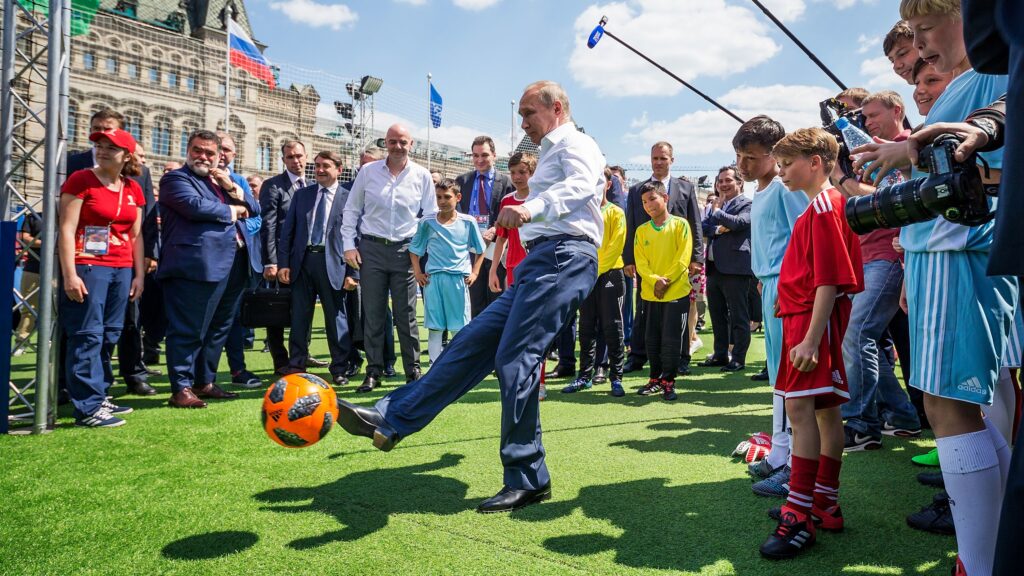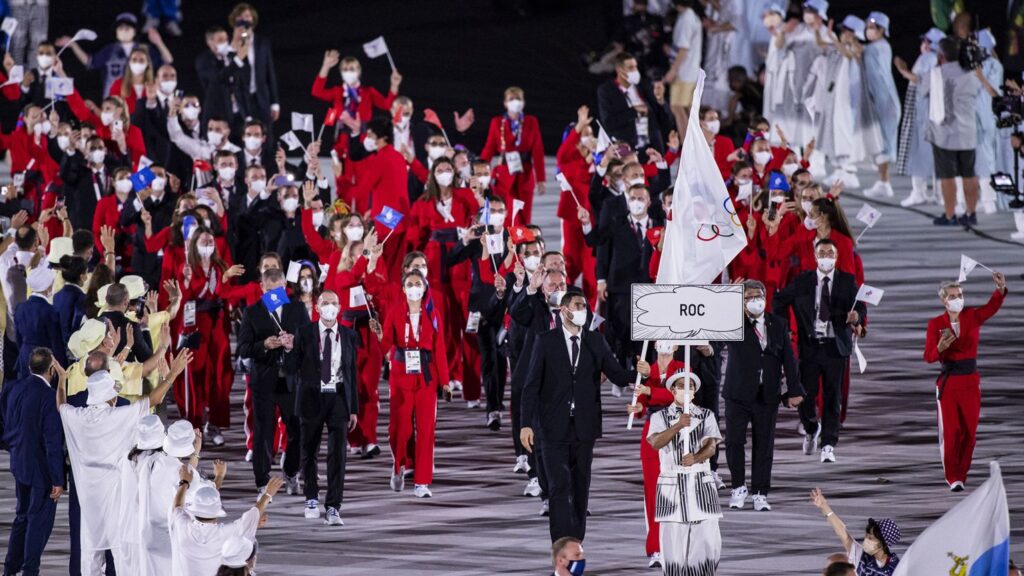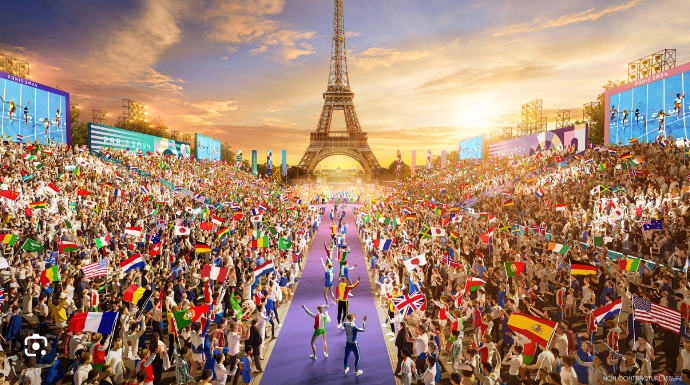War & Peace at the Paris Olympic Games
April 18, 2024
With less than 100 days to the Paris Games, international major events and Olympic Games advisor Michael Pirrie outlines the key issues and themes likely to dominate the world’s biggest event.
GAMES D-DAY
The D-Day ceremonies in France in early June will have heightened significance for both the international community and host nation of Paris and the rapidly approaching Olympic Games.
The gathering of national leaders, families of the fallen, veterans and survivors of the pivotal Second World War battle, which changed the course of the war in favour of the Allies, also comes at another significant moment.
The 80th D-Day anniversary ceremonies in Normandy, northern France, will take place in the shadows of Russia’s cataclysmic war in Ukraine, the first major land conflict in Europe since World War 11.
It will also take place against a widening conflict in the Middle East as Iran intervenes in the Gaza war against Israel.
The D-Day ceremonies will attract global attention, world leaders and heads of state from across Europe and beyond just weeks out from the Paris Games.
Those leaders will return to France again to attend the Opening Ceremony of the Olympic Games in Paris.
According to French organisers, Russia’s leader, Vladimir Putin will not be welcome at the landmark D-Day anniversary, just as he won’t be allowed to attend the Paris Games, as the Olympics continues to reflect the world’s rapidly changing geopolitical landscapes impacting on sport.
“For more than two years now, the Russian Federation has been waging a war of aggression against Ukraine, which France condemns in the strongest possible terms,” the organisers said announcing the move.

PARIS PRELUDE
Extraordinary security will be in place for the D-Day anniversary and for the Paris Games.
The prelude to the Olympic Games against such a backdrop of war settings will provide the context for the much anticipated Paris Games.
If the Olympic Games journey from Rio to Tokyo was unprecedented, passing through a global pandemic, the onward connection to Paris looms as an epic follow up.
With the Torch Relay commencing earlier this week in Greece, bound for Paris, the countdown to the 2024 Games is now officially underway.
The Olympic Games space ship will soon be taken to its launching pad in central Paris for lift off in the 26 July opening ceremony.
The proximity of Paris to Russia’s war in Ukraine – just three flying hours from Kyiv – will shape the international environment surrounding the Games in key ways.
The countdown to Paris is taking place amid growing security concerns in NATO and amongst governments, governing bodies, and Olympic committees of Europe, closest to the war.
Putin’s refusal to stop the slaughter in Ukraine while still threatening nuclear strikes, means the war and Olympic Games are on a seemingly unstoppable collision course.
It’s now increasingly evident the world’s premier sporting event dedicated to peace will take place on a host continent moving towards a pre-war footing.
KEY GAMES THEMES & PRIORITIES
This in turn will shape the narrative of the Paris Games, and its central themes likely to revolve around war and peace.
It will also determine priorities in Paris.
Nothing will be more important than security as organisers finalise operational plans for unprecedented safety in the French capital for world leaders, Olympic teams, committees, sporting officials and others to avoid possible fall out from Russia’s war in Ukraine and Middle East tensions
While Chinese fighter jets invaded Taiwan’s air space in the countdown to the Beijing 2022 Games, forcing Olympic peace doves to find alternative flight paths into the host city, the doves this time may need aerial armour for protection against drones and missiles on route to Paris.
GAMES OF HOPE
The Olympic Games has moved into the business of hope as a metaphor for sport in troubled times over the past decade under current IOC president Thomas Bach.
The troubles started after the spectacular success of the 2010 Winter Olympics in Vancouver, which was quickly followed by the London Summer Olympic Games in 2012, regarded by many as the best of the modern era, following closely in the footsteps of the universally acclaimed Sydney 2000 Olympics, which set a new benchmark.
Sochi followed the London Olympics ten years ago, triggering a decade of widespread moral and sporting despair that could have come straight from the pages of an updated draft of Dostoevsky’s ‘Crime and Punishment’ novel – the plot this time dealing with the national and personal responsibilities of secret government doping programs for Russian athletes.
Revelations of state sponsored doping in wake of a record medal haul by Russia at its home Olympics in Sochi, rocked international sport and the fall out continues today.

DECADE OF DARKNESS FOR SPORT
The decade of Russian-induced despair in sport has continued with Putin’s apocalyptic invasion of Ukraine more than two years ago, taking the international community and sport to a new flashpoint.
Russia’s war has so far killed more than 400 members of Ukraine’s sporting community – approximately the same as the biggest national Olympic teams that will compete in Paris.
Those killed by Russian troops, missiles or other weapons of war have included talented, young footballers, record breaking marathon runner, snow board champion and many other athletes who dreamed of representing their sports proud nation at international competitions, especially the Olympics.
The terrible loss and suffering inflicted by invading armies from Russia has included rape and torture of countless Ukrainians representing a human tragedy on a vast and unimaginable scale.
This plague of death and suffering enforced on innocent Ukraine families and residents has been carried out by a super power that uses sport to promote itself on the world stage.
This has darkened international landscapes and raised urgent questions about sport’s roles and responsibilities in such horrific circumstances.
These questions have centred especially around whether athletes from Russia, which has been accused by international tribunals and experts of war crimes, should be allowed to attend the Paris Games, and the Olympic Movement’s commitment to peace.
This has prompted further questions about whether sport can be neutral to Russia’s slaughter of human life and presence in Paris.
This could see Russian athletes competing in Paris while fellow countrymen conduct torture, kidnapping and mass murder operations in nearby Ukraine.
Russia’s murderous war and violent ideology towards women and children as well as the elderly have made participation in Paris about sport’s heart, soul, humanity and integrity as well as neutrality, as highlighted by Seb Coe, president of World Athletics, the most important Olympic Games sport.
Putin needs the Olympic spotlight, according to Russia watchers, as battlefield casualties continue to mount and pockets of domestic discontent linger despite his recent reelection and sudden, suspicious deaths and imprisonment of critics
Putin also fears losing the Olympic stage to US, Canada, Great Britain and other western nations supporting Ukraine.
The IOC and World Athletics have armed Ukraine’s athletes with sports equipment and safe training locations, while the West has armed Ukraine with military equipment and training.
WAR & PEACE IN PARIS
The moral, ethical, legal and political debates over Russia’s presence in Paris, as independent neutral athletes, has divided governments, sporting leaders and federations, and wider international community.
The IOC has provided important leadership in trying to reconcile the conflicting positions on Russia’s Olympic future.
The effort has centred on finding a meaningful position on sport neutrality that can be supported by Olympic stakeholders.
This has focussed on the principle that athletes can’t be held responsible for the actions of governments, while the extremely close – and dependent – relationship between a corrupt Russian sports system and Olympic committee with the Kremlin, which controls sport, has made it almost impossible to separate sport from politics, leading to fundamental doubts about the possible neutrality of Putin’s athletes.
The enormous suffering and global impact of Russia’s war also means that neutrality in Paris is about more than sporting dogma.
Senior western military analysts and several sports officials have expressed major concern that the presence of athletes from Russia in Paris will inevitably be portrayed by Putin as a gesture of forgiveness and support from Olympic and international sport, endorsing the war.
While Ukrainian athletes have perished on the front lines, Russia’s athletes are expected by their national Olympic committee to support the war, but are spared military service to prepare for a Games call up.
Their places in the war are taken by legions of disadvantaged and vulnerable young Russian men whose lives are regarded as expendable or not valued because they might not be gifted enough to compete in Paris.
Instead, they are sent to early deaths by the Kremlin in a pointless war.
Meanwhile, one of Russia’s most celebrated athletes of recent times, Olympic gold medal pole vaulter Yelena Isinbayeva, long suspected of having close links with Putin and holds honorary rank of major in the Russian army, is reportedly living in a secure luxury home outside Russia.
TRUCE TIME
The search for an agreed international position on Russia has become increasingly urgent as time starts to run out for peace in Paris, with French President Macron recently calling for a temporary truce in international conflicts during the Games.
Macron said France would “do everything” to bring about a truce in conflicts in Ukraine, Gaza, and Sudan.
The IOC president has correctly portrayed the last Summer Games in Tokyo, delivered against doomsday like scenarios in a Covid-19 world, as a beacon of hope; a symbol of solidarity and recovery.
This time the IOC is up against another mass murdered in Putin who specialises in killing hope.
Unlike the Covid pandemic, the world cannot be vaccinated against Putin nor the dangers that Russia poses to world peace and possibly the Games.
Russia’s war in Ukraine, along with rising Middle East war concerns and return of violent Islamic State operations in Europe alters the nature of risk in Paris – the fatal air borne Covid-19 virus particles that threatened the Tokyo Games to lone wolf fanatics and highly organised terrorist cells and protest activist groups seeking global attention.
While the French President has recently warned that Putin would attempt to undermine Paris, the Russian dictator and Kremlin have stepped up attacks on IOC President Bach, angry that neutrality protocols will limit Russian athletes, and restrict Russia’s visibility at the Paris Games.
The Olympic Games is a key global target for Putin’s domestic and international audiences and war propaganda strategy.
The Kremlin has also waged a disinformation campaign against Seb Coe, President of World Athletics, over a ban placed by Coe and his executive board on Russian athletes competing in track and field, the highest profile sport in Paris.
The attacks on Bach and Coe form part of a Kremlin strategy to discredit those who raise concerns about Russia’s conduct in international sectors important to Putin’s domestic and international audiences and image, including sport.
Leading British sports and Olympic figure, Sir Craig Reedie, former WADA head, who over saw investigations that helped to expose the vast hidden scale of doping and corruption in Russian sport, is suspected of being targeted by a Kremlin agent involved in the attempted poisoning of a Russian double agent living in England.
Bach, Coe and other Olympic sporting leaders have provided urgently needed safety, shelter, security and support to Ukraine’s stricken athletes, families and communities.
These pre-Games Olympic rescue efforts, in the face of Russian pressure and other geopolitical obstacles, have provided much needed hope to Ukraine’s stricken communities.
This has raised hopes, as the Olympic Torch Relay continues its journey to Paris, that the city of light will host Games that will cut through the darkness and despair of Russia’s war in Ukraine, Middle East tensions and other combat zones, and unite a war divided world with hope of possible better outcomes ahead.



